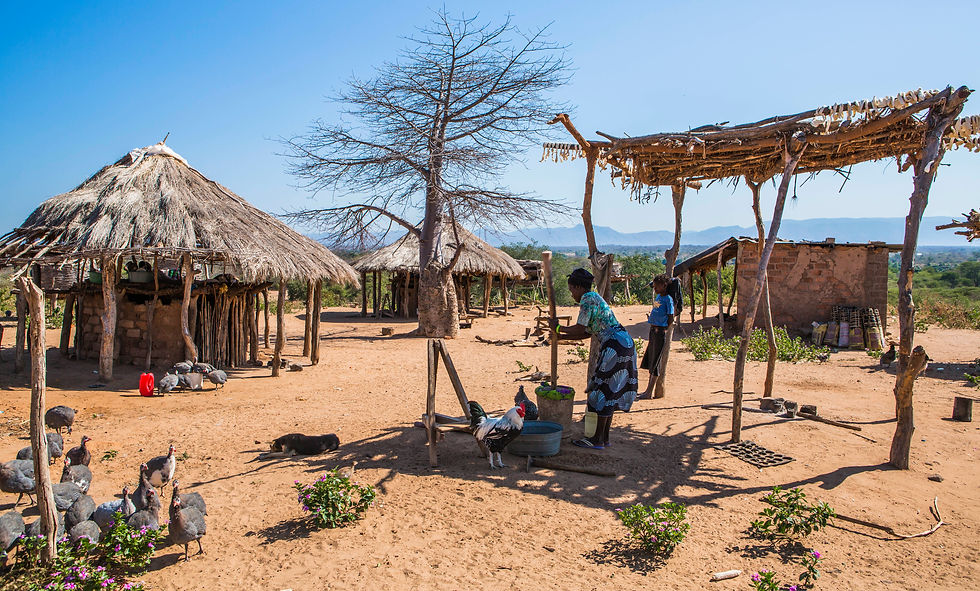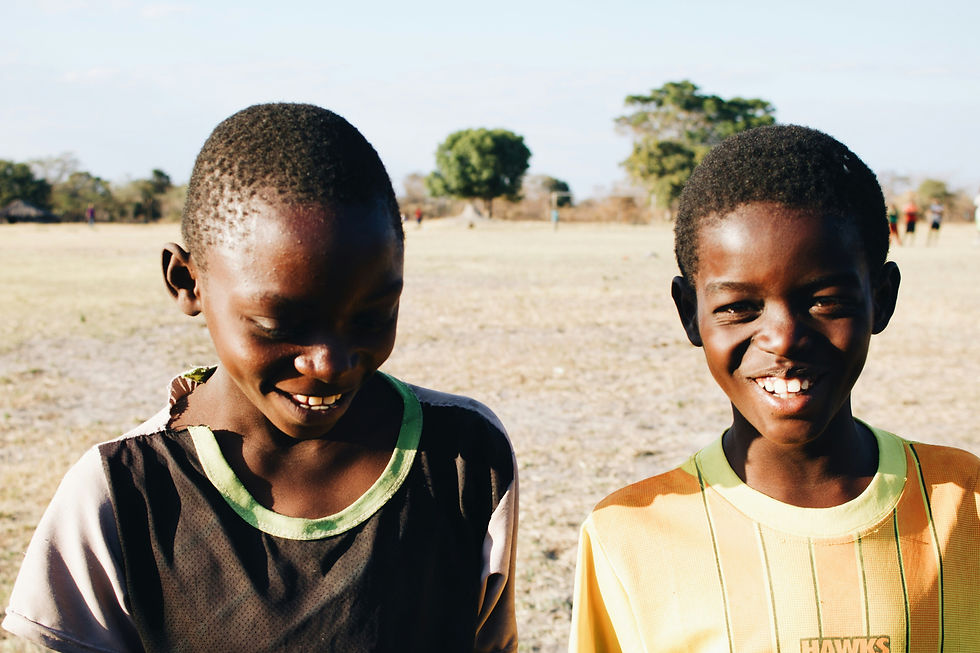Detecting Human Interpretable Features to Support Poverty Mapping
ENHANCING THE EFFECTIVENESS OF SOCIAL SAFETY NETS
THROUGH AI and MACHINE-LEARNING INNOVATION


“Detecting human-interpretable features from satellite imagery to support poverty mapping” focuses on detecting human-interpretable features of poverty, such as different types of roads (paved vs. unpaved), water bodies, and buildings, with pixel-level accuracy. This state-of-the-art semantic segmentation model utilizes sub-meter resolution images from PlanetScope and represents the first vectorized map of poverty features in Africa.
Food security and inequality continue to worsen in developing countries around the world. In response to this, many countries increasingly rely on poverty mapping to identify impoverished communities and provide social protection. However, traditional survey-based mapping is less likely to capture granular poverty in small areas.
To address these issues, the proposed study aims to develop human-interpretable and context-aware wealth metrics using AI/ML innovation. In our study, we focus on Zambia's Food Security Pack (FSP) program, aiming to enhance its effectiveness by targeting vulnerable households more accurately. By engaging with local communities and stakeholders, we seek to create a high-resolution poverty map for better targeting of food aid, ultimately aiming to improve the program's poverty-reducing impact.
..................................................................................................................................................................................
Satellite imaging in Zambia remains largely unexplored, posing distinct challenges for our researchers due to the scarcity of data. To address an absence of pre-annotated images, our team has meticulously examined and annotated more than a thousand Planet Scope images ranging from 50cm to 7m. These efforts aim to equip AI models with the capability to accurately detect poverty-related features across the nation.



Over 61.4% of Zambia's population lives below the international poverty line. Zambia's Ministry of Community Development and Social Services (MCDSS) aims to align the distribution of the Food Security Pack (FSP) with varying levels of poverty across administrative regions. By creating wealth metrics and engaging stakeholders, including Zambian communities and international agencies, our study seeks to enhance the effectiveness of FSP distribution. This effort includes producing a high-resolution poverty map for targeted food aid distribution. The long-term outcome anticipates reallocating a budget of USD 64 million, benefiting over 20 million FSP recipients.
Research
.................................................
Dr. Jung's study aims to enhance the effectiveness of Zambia's Food Security Pack (FSP) program by using AI and Machine Learning innovation to more accurately target vulnerable households.
PARTNERS ....................................................

Recipient of the Research Council's Collaborative Multidisciplinary Award
PARTNERS ....................................................

PARTNERS ....................................................

RESEARCH TEAM .................................................................
The team consists of computer/data scientists
and social scientists:
-
Woojin Jung (PI) - Rutgers, School of Social Work
-
Dmitris Metaxas - Rutgers, Computer Science
-
Quentin Stoeffler - University of Bordeaux, Economics
-
Saeed Ghadimi - University of Waterloo, AI Institute
-
Dimitrios Ntarlagiannis - Rutgers, Earth and Env. Sciences
-
Arunesh Sinha - Rutgers, Mgmt Science and Information Systems
-
Min Xu - Rutgers, Statistics
-
Tawfiq Ammari - Rutgers, Communication and Information
-
Andrew Kim - Rutgers, School of Social Work
-
Maryam Hosseini - MIT, Urban Studies and Planning
-
Melissa Sartorius - Rutgers, School of Social Work
Research Duration
.................................................
July 2021 - Ongoing
The study will conclude with the dissemination of findings to policymakers.
4 STAGES ................................................
-
Community engagement to visualize poverty
-
Acquisition and labeling of satellite imagery
-
Development of deep learning models to obtain intuitive features
-
Creation of high-resolution poverty map and index
RESEARCH TEAM .................................................................
-
Sajedeh Goudarzi - Rutgers, Global Urban Studies
-
William Benjamin - Allstate Corp., Data Science
-
Rofaida Benotsmane - Istanbul Technical Univ., Economics
-
Yuxiao Lu - Singapore Management Univ., Computer Science
-
Vatsal Shah - Rutgers, Computer Science, Statistics
-
EJ Knopf - Rutgers, School of Social Work
-
Jamie Cramer - Rutgers, School of Social Work
-
Tamara Billima - Local NGO
-
Bernard Tembo - Local NGO
-
Owen Siyoto - Local NGO
-
Cheelo Mwiinga - Local NGO


